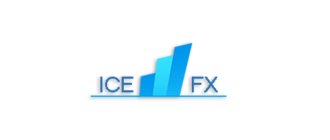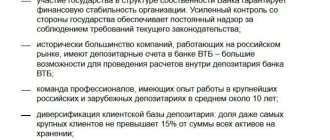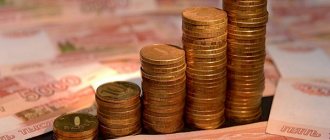What does a broker do?
Editorial
Promdevelop editorial team
Many people have heard the name of the profession, however, they have a vague idea of what representatives of brokerage firms and exchanges do.
This article will look at who brokers , what their main occupation is, and it will also show how brokers earn their money. And the most interesting thing is how much insurance brokers can earn.
Is it beneficial for a broker to have its traders trade profitably?
It really all depends on the broker. If we look at the market in a simplified way, all brokers can be divided into two categories: ECN (STP) brokers who bring clients’ transactions to the interbank market, and “kitchens” in which trading is carried out within the company, and the trader, at best, enters into transactions with other clients , and at worst, trades against the DC itself.
With ECN brokers, everything is clear - it is beneficial for them that the trader concludes as many transactions as possible in order to earn money on commissions, and a trader who loses his deposit will not be able to conclude transactions. Therefore, it is beneficial for them that the client trades at least not at a loss.
With the “kitchens”, in fact, everything is also not so bad: there are many such brokers who have been working in the market for 10-20 years, and have not been seen in obvious deception and draining clients. When a novice trader himself constantly makes mistakes, there is no need to lose him, he will lose money himself by concluding unprofitable trades. And in Forex, the majority are usually wrong.
The attitude of the “kitchens” towards traders who trade profitably is somewhat more complicated. Large companies may well turn a blind eye to the stable but small earnings of one or another client and allow him to withdraw his money - in the end, reputation is more important. Moreover, this can make good PR and attract hundreds of newcomers who will ultimately lose much more money.
But if the company understands that one of its clients is not only consistently trading in profit, but is also constantly increasing its volumes, taking more and more from the broker’s pocket, measures begin to be taken against him. Moreover, in most cases, the broker deprives the client of all his funds and blocks access to the trough, without formally breaking the law. We’ll return to the question of how a broker manages this a little later, but for now it’s worth paying attention to the most popular ways to earn stable income on Forex.
How to conclude an agreement and start buying stocks or bonds
The agreement is concluded:
- in person at the office;
- online with subsequent sending of certified copies of documents;
- online through the State Services system.
Next, the broker registers the trader on the exchange. Open a brokerage account, transfer money and start working. If registration takes place on the exchange outside of lunchtime, you can trade after half an hour.
Where are shares purchased through a broker stored?
Securities are stored in the depository, on an impersonal broker's securities account (nominee holder). Accounting (not storing) shares of specific traders, distribution of dividends is the job of a broker.
Therefore, I recommend clarifying questions about the depository and securities account at the stage of signing the agreement.
Where does stable income come from on Forex?
Traders who make money from Forex trading can be divided into two categories. The first is experienced stockbrokers, who, of course, have a strategy (or, more precisely, a set of certain rules), but they also make decisions based on their own experience, and sometimes even by intuition. Such specialists do not turn a profit every month, and can suffer failures for a long time, but experience and professionalism allow them to get out of the hole over and over again, compensate for all losses and get back on the horse again.
Such traders, as a rule, trade in large volumes, so they immediately go to ECN brokers, without the risk of contacting the kitchens. As a result, the broker consistently receives his commission, and the trader is confident that he will not be deprived of his honestly earned profit.
The second category of traders who make money are algorithmic traders, bot operators and all those who have a profitable trading system and know how to strictly follow its rules. In this case, the trader does not have to be a seasoned stockbroker; he just needs to understand the basics of the market and be able to control his emotions. Part of the income from algorithmic trading is made by people who do not have stock exchange experience, but are versed in programming and calculating probabilities. Such specialists, based on market analysis, can write a robot that will bring stable profits under certain conditions until the market evolves and the previous initial data loses its relevance.
But even before the market changes, most automated trading systems have one problem: they require orders to be executed instantly. An ECN broker cannot provide such conditions - it allows the trader to conclude a deal only when it finds a counterparty for him. And in force majeure situations (for example, when trading on news, for which most of these systems are designed), serious delays in execution occur, as well as slippages when a deal is opened at a price a couple of dozen points higher/lower than planned.
Read more about this in the article How orders are executed on Forex.
This is why most algorithmic traders have to apply for , since only they can provide instant execution of orders. And the broker, having noticed such an inconvenient client, begins to look for ways to “drain” him with minimal risk to his reputation.
Broker salary in Russia, how much brokers earn in different regions of the country
In order to understand how much brokers in Russia earn today, you can refer to the data of Rostrud; the average salary last year for representatives of this profession was a little more than 75 thousand rubles, which is almost 2 times higher than that of the average person. At the same time, income by region can vary by up to 80 thousand rubles.
Now let’s look at what brokers’ salaries are in different regions of the country. According to ROSTRUD data, residents of the Krasnodar Territory and Bashkiria have the highest salaries; here they receive 125 thousand and 80 thousand rubles, respectively. Next come the Moscow and Vladimir regions, and sales representatives from the Volgograd region close the top five.
How to become an insurance broker? What is needed for this?
After reading the article, you can understand who brokers are and how they can earn money. You can also find out the size and their salaries in different parts of our country.
How “kitchen” brokers legally take money from successful clients
It should be understood that a kitchen broker, especially one who has been working on the market for several years, calculates in advance the likelihood of traders appearing who will be able to achieve a permanent income in one way or another and takes action. The easiest way to protect yourself from overly lucky clients is to insert a few small and seemingly harmless clauses into the client agreement. This may be a time limit on the transaction (which is critical for scalpers), a limit on the maximum profit in a transaction, or a maximum withdrawal amount. If a trader even accidentally records a larger profit than provided for in the agreement, he can formally be recognized as a violator and be denied further service by freezing his accounts (that is, taking away the remaining money on deposit).
There are even simpler solutions - to add a clause to the offer providing for the broker’s right to refuse to provide further services to the client at any time without giving reasons. No matter how funny it may seem, a trader who accepts such conditions assigns the broker the right to simply take away his deposit without allowing him to complete a single transaction.
Of course, there is also the reputation factor, and in most cases it is even more serious than the legality of the broker’s actions (most of them are still registered offshore). A large company will not brazenly steal clients’ money - after all, this threatens much greater losses due to the fact that newcomers will prefer competitors with a better reputation.
That is why, before choosing a broker, you must not only carefully (point by point) read the client agreement with all the additions, but also study reviews about this company on the Internet. Moreover, it is often not easy to see the real picture due to, on the one hand, a large number of custom paid reviews from the DC itself, and on the other hand, from the black PR of competitors and simply offended losers who will easily denigrate an honest company, just not to recognize their own errors.
FAQ
I fully approve of the approach: “before investing money anywhere, think through your own actions in the event of the most pessimistic scenario.” Therefore, for future professional traders, I will answer the most common questions.
What to do if a broker loses his license
I will consider revoking the license on the stock market. In theory:
- The securities will not be lost (they are stored in a depository - a third-party organization).
- The money is kept in a brokerage account. No penalties will be imposed on funds.
Reality:
- The broker has access to securities.
- According to the agreement, he can manage the client’s money from the brokerage account.
When a license is revoked, 3 months (no more than a year) are given to resolve all issues. The victim’s task is to withdraw money and securities (transfer to another intermediary or to be registered with the issuer). Don’t forget to get a broker’s report - this will allow you to correctly calculate and pay taxes.
When the intermediary has escaped or the license has been revoked in another field of activity, contact law enforcement agencies to terminate the contract and receive compensation.
How to reduce the risk of losing money
There is only one piece of advice - do not contact the first company you come across. Gather as much information as possible:
- license;
- financial results (information is public);
- period of work on the market;
- reviews of work;
- rumors, scandals and gossip among office workers (often published online).
I recommend being critical of the ratings: unfortunately, the results are often paid for.
Yes, when working with an intermediary (outside the insurance industry) and in general with financial instruments, you can contact the insurance company. Then, in the event of an unpleasant event, you will be able to return at least part of your savings.
Some nuances of cooperation with Forex brokers
In addition to kitchens and ECN companies, there are brokers that work on a hybrid principle. This means that they bring large transactions to the interbank market, and fractional lot orders are traded internally. Brokers do this in order not to refuse to provide services to small clients who may later become serious investors. However, it is impractical to display transactions with a volume of 0.01 lots on the interbank market, so the broker executes them independently.
In practice, this is fraught with the following situations: the client’s transactions are executed instantly and at the stated price while he is trading a small lot. If a trader conducts systematic trading and his deposit grows, he begins to increase volumes. As soon as the volume of transactions reaches 1 lot, orders are transferred to the interbank market, delays in execution and slippage appear. The trader begins to think that the broker is deliberately putting a spoke in his wheels, but in fact he is only bringing him to the real interbank market.
We wrote about this in more detail in the article How the Forex market works.
However, regardless of the company’s motivation, such a scenario is unacceptable for a system trader. Therefore, before starting cooperation with a broker, it is necessary to clarify all the nuances of execution. If a trader decides to cooperate with such a company, it is necessary to limit the volume of transactions.
How to avoid becoming a victim of scammers
Now that Forex is gaining more and more popularity every year, various organizations are entering the market and committing direct or indirect fraud against clients. This could be persuasion to open an account for a large amount, take out a loan to replenish a deposit, or simply refuse to return funds.
In order to avoid falling into such a trap, you need to exercise basic caution and not cooperate with unverified companies. Your choice of broker should be made based on your own research and conclusions. If a representative of an unfamiliar company calls you and offers to open an account, promising mountains of gold, it is better to refrain from such cooperation - reputable brokers do not attract clients with banal cold calls.
If it so happens that you have already become a client of a dubious organization (from the category of “offering a job” and then persuading you to take out a loan to open an account), and you are having problems withdrawing funds, you need to immediately take decisive action. The easiest option is to write a statement to the prosecutor's office . In 99% of cases, the money will be returned within a few hours. The application can then be withdrawn as unnecessary.
How much do their services cost?
The cost of services depends on the field of work. For example, a Forex broker takes a commission when withdrawing funds, making money on each transaction (spread).
The customs broker needs to pay:
- for each completed form (one for the foreign trade code) from 2500 and above;
- for storing cargo - an average of 10 rubles. for 1 kg per day.
Some companies provide a price list where literally every sneeze is listed, others hide part of the payments. In general, the average payment for services is 20–25%. For a large order, the percentage may be revised downwards.
Minimum amount for work
If we are talking about working on the stock exchange, I focus on 15–20 thousand rubles. If you don’t have such funds, try, for example, mutual funds (where the entry amount can be 200 rubles, taking into account all commissions).











